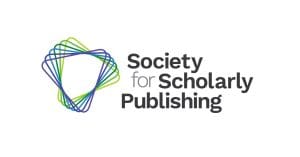LPC’s Strategic Affiliates Program connects our community with peer membership communities working in libraries, publishing, and scholarly communications. LPC’s leadership has regular touch base calls with each of our affiliates and occasionally invites their leadership to group discussions on topics of broad interest. This work helps us to support the ‘community of communities,’ to align our work and to avoid duplication of effort. However, it is largely invisible to LPC’s membership. To recognize our affiliates’ contributions to our community, and to connect our members to resources and opportunities in peer communities, we are publishing a series of Affiliate Spotlights on the blog in 2024.

About
Name: Society for Scholarly Publishing (SSP)
Website: https://www.sspnet.org/
X (Twitter): @scholarlypub
Strategic affiliate since: 2017
The Society for Scholarly Publishing (SSP), founded in 1978, is a nonprofit organization formed to promote and advance communication among all sectors of the scholarly publication community through networking, information dissemination, and facilitation of new developments in the field.
SSP members represent all aspects of scholarly publishing — including publishers, printers, e-products developers, technical service providers, librarians, and editors. SSP members come from a wide range of large and small commercial and nonprofit organizations. They meet at SSP’s annual meetings, educational seminars, and regional events to hear the latest trends from respected colleagues and to discuss common and mutual (and sometimes divergent) goals and viewpoints.
Resources
We asked our affiliates to identify some of their resources that may be of interest to the LPC community.
SSP has a wealth of resources available to the scholarly communications community for both members and non-members alike. Our informative and influential blog, The Scholarly Kitchen, serves all segments involved in the scholarly publishing community with daily posts about the latest industry topics. The OnDemand library hosts hundreds of recorded webinars and conference sessions, many of which are freely available (newer content available for purchase). We offer a variety of free webinars throughout the year on DEIA topics (via C4DISC), early career professional topics, and our Innovation Showcase which highlights the newest innovations in the industry.
Our job board lists a variety of open positions (including free internship listings) and our interactive Professional Skills Map presents the most frequently reported personal characteristics and interpersonal and technical skills that are essential to success for a variety of roles. On our website, we offer a roundup of publishing ethics resources and a list of publishing and library programs. We currently have three Communities of Interest open to non-members, the Early Career Professionals Networks, the Humanities and Social Science Publishers Network, and the AI in Scholarly Publishing Network.
We welcome a diverse group of scholarly communications professionals including publishers, librarians, funders, researchers, and industry suppliers to our Annual Meeting each year at the end of May/early June. In the fall, we offer the more intimate New Directions Seminar in Washington DC; and monthly webinars connect professionals to latest information on a variety of topics throughout the year.
Collaborations
SSP has been a regular sponsor of the Library Publishing Forum for many years (thanks, SSP!), but otherwise, our most significant collaboration has been through the Coalition for Diversity and Inclusion in Scholarly Communications (C4DISC). C4DISC was started by Melanie Dolechek in her role as SSP Executive Director. LPC has been involved since its founding, but had the opportunity to work most closely with the group during its community formation period, when we contributed Educopia consulting hours to the effort.
